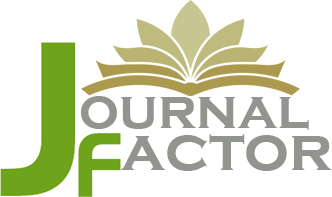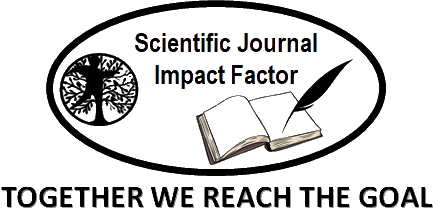Indexing
Fast Indexing
For fast indexing, we are using sitemap, search engine optimization, backlinks and several database submission to index your paper like Research Bible, Scribd, Google Scholar, ISSUU, ResearchGate, Index Copernicus, Academia, ESJI, and more.Open Access Databases
Open access is the ability of anyone to view and download your article without having to pay. This has been proven to be a good thing, since open access articles are cited more often in other scholarly publications than those articles available only through paid access.PDF Optimization
We are embedding meta data inside PDF file like title, subject, keywords and author name for quick indexing on several search engines. We also compress the PDF file, so that it can be easily downloadable on the Internet without spending any single minute.Open Access Journal
Open access (OA) refers to free, unrestricted online access to research outputs such as journal articles and books. OA content is open to all, with no access fees. One involves publishing articles or books via the OA route on a publisher's platform (often referred to as gold open access).— Indexing Databases —
— Frequently Asked Questions —
What is Google Scholar Indexing?
Google Scholar Indexing lets people search for academic content like research papers, theses, and scholarly books on Google Scholar, a search engine for educational literature that's free to use. To be included, the content needs to be scholarly, open to the public, and have details like title, authors, and when it was published. It should come in formats such as PDF or HTML and follow the rules Google Scholar sets for scanning and listing. Content that gets indexed becomes visible worldwide, gets more citations, and boosts academic profiles. To make sure your work gets indexed, publish in well-known journals or data banks and set up your website to work well with Google Scholar. Getting the format right and making sure people can access it are key to successful indexing.
How long does it take to index a paper on Google Scholar?
Generally, paper indexing takes around 20 days to 2 months. Many times we have also got to see that some papers have been indexed within a week. The indexing of the paper also depends on its quality like no grammar mistakes, unique content, readability, small paragraph, searchable keywords and proper references with URL sources.
How to add proper references in the paper / manuscript?
Adding proper references will helps to give credit to other authors. Example: Setiawan, I. and Riantini, L.S., 2021. Risk Evaluation Causes of Contract Change Order to Improve Cost Performance on Railway Construction Project. United International Journal for Research & Technology (UIJRT), 2(9), pp.10-14. URL: https://uijrt.com/articles/v2/i9/UIJRTV2I90002.pdf
- Author Name: Setiawan, I. and Riantini, L.S.
- Year: 2021
- Paper Title: Risk Evaluation Causes of Contract Change Order to Improve Cost Performance on Railway Construction Project
- Journal Name: United International Journal for Research & Technology (UIJRT)
- Volume(Issue): 2(9)
- Pages: pp.10-14
- URL Source: https://uijrt.com/articles/v2/i9/UIJRTV2I90002.pdf
Why do we need to avoid plagiarism?
When you copy someone’s data, you are stealing the intellectual property of him/her or any organization. By submitting plagiarized material, you are submitting work that is not your own for credit, which belongs to another author.


















